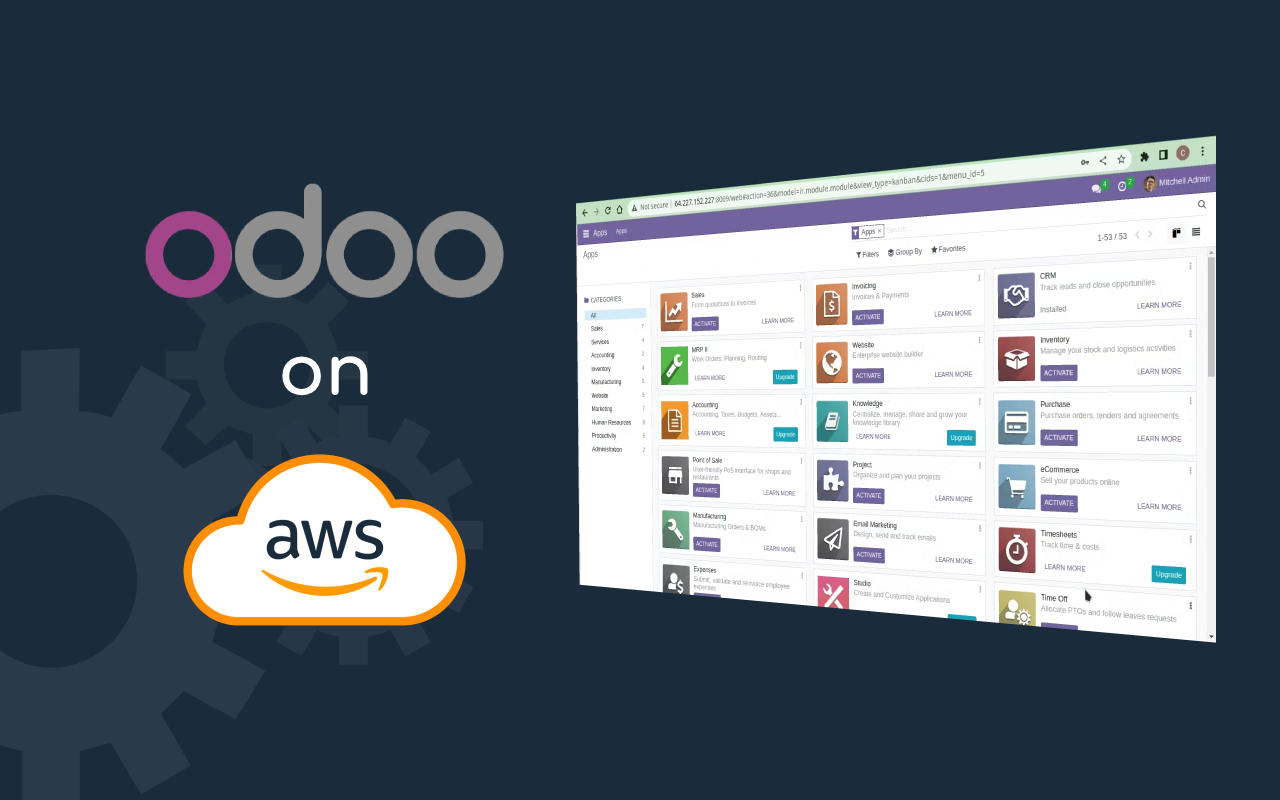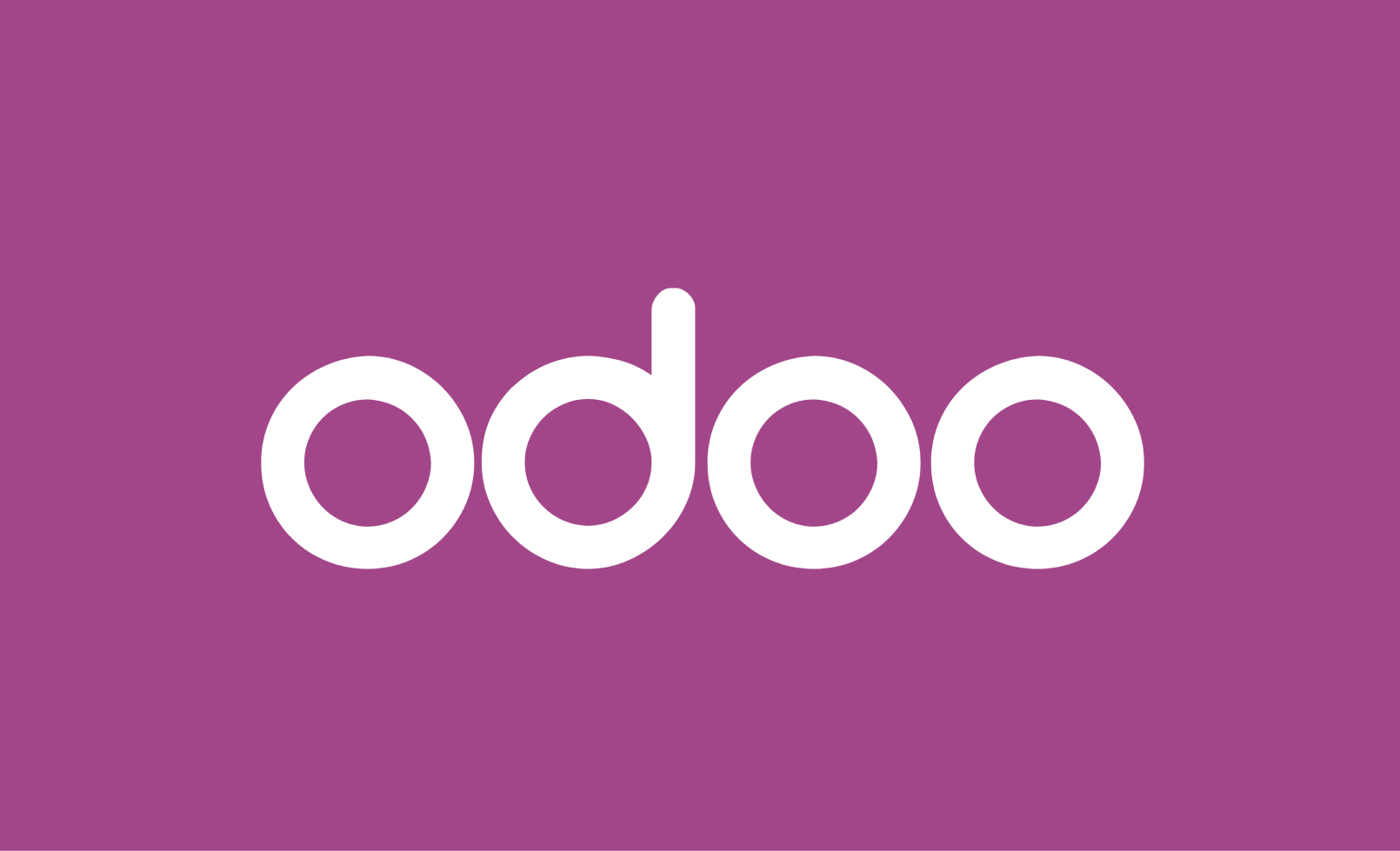
Table of Contents
Introduction
Odoo is one of the most popular ERP(Enterprise resource planning) Software used for Project Management, Sales Management, accounting, etc. by large companies worldwide.
Step#1 Prepare the Environment
Update System
$ sudo apt updateInstall Git
Git is a source code management tool widely used for software source code management.
you can install git in linux using the below command
$ sudo apt install git -yInstall Python & PIP
Python, as you must be familiar, is a programming language used to built a vast range of web applications including websites, portals & APIs.
PIP is a dependency manager for Python. You can add different Python packages using pip commands
Python can be installed by the following command-
$ sudo apt install python3-pip -yInstall Python Dependencies
$ sudo apt install -y build-essential wget python3-dev python3-venv python3-wheel libfreetype6-dev libxml2-dev libzip-dev libldap2-dev libsasl2-dev python3-setuptools node-less libjpeg-dev zlib1g-dev libpq-dev libxslt1-dev libldap2-dev libtiff5-dev libjpeg8-dev libopenjp2-7-dev liblcms2-dev libwebp-dev arfbuzz-dev libfribidi-dev libxcb1-dev
Add New System User odoo
$ sudo adduser odooStep#2 Install & Configure Postgresql
$ sudo apt install postgresql postgresql-contrib -y
$ sudo systemctl start postgresql$ sudo systemctl enable postgresql$ sudo passwd postgres$ su - postgres$ createuser odoo$ psqlpostgres# ALTER USER odoo WITH CREATEDB;postgres# \qexit;Install WKHTMLTOPDF
sudo wget https://github.com/wkhtmltopdf/packaging/releases/download/0.12.6-1/wkhtmltox_0.12.6-1.bionic_amd64.deb
sudo apt install ./wkhtmltox_0.12.6-1.bionic_amd64.deb -y
Step#3 Download & Configure Odoo16
Make Odoo Directory & set correct permissions
$ sudo mkdir -p /opt/odoo/odoo
$ sudo chown -R odoo /opt/odoo$ sudo chgrp -R odoo /opt/odooSwitch user to odoo & download odoo16
$ sudo su - odoo$ git clone https://www.github.com/odoo/odoo --depth 1 --branch 16.0 /opt/odoo/odoo$ cd /opt/odooCreate Virtual Environment
$ python3 -m venv odoo-venvActivate Virtual Environment
$ source odoo-venv/bin/activateInstall Odoo Dependencies
$ pip3 install wheel$ pip3 install -r odoo/requirements.txtDeactivate Virtual Environment
$ deactivate
Create Addons folder
$ mkdir /opt/odoo/odoo-custom-addons
$ exit
Create Odoo configuration file
$ sudo nano /etc/odoo.conf
"[options]"
; This is the password that allows database operations:
admin_passwd = StrongMasterPassword
db_host = False
db_port = False
db_user = odoo
db_password = False
addons_path = /opt/odoo/odoo/addons,/opt/odoo/odoo-custom-addonsCreate Odoo Service
$ sudo nano /etc/systemd/system/odoo.service[Unit]
Description=Odoo16
Requires=postgresql.service
After=network.target postgresql.service
[Service]
Type=simple
SyslogIdentifier=odoo
PermissionsStartOnly=true
User=odoo
Group=odoo
ExecStart=/opt/odoo/odoo-venv/bin/python3 /opt/odoo/odoo/odoo-bin -c /etc/odoo.conf
StandardOutput=journal+console
[Install]
WantedBy=multi-user.targetReload System
$ sudo systemctl daemon-reloadStart & Enable Odoo Server on startup
$ sudo systemctl start odoo$ sudo systemctl enable odooCheck Status of Odoo server
$ sudo systemctl status odooVideo Tutorial to install Odoo16 on Ubuntu Server
Frequently Asked Questions
The latest stable release of odoo is V16.
Odoo is available in two versions, community edition(Free) & Enterprise edition(Paid)
Odoo is highly customizable according to your business needs. There is a vast community of developers & agencies who provide odoo development services.
Yes Odoo has native Accounting module built-in, plus you can extend and customize odoo erp according to your requirements.



